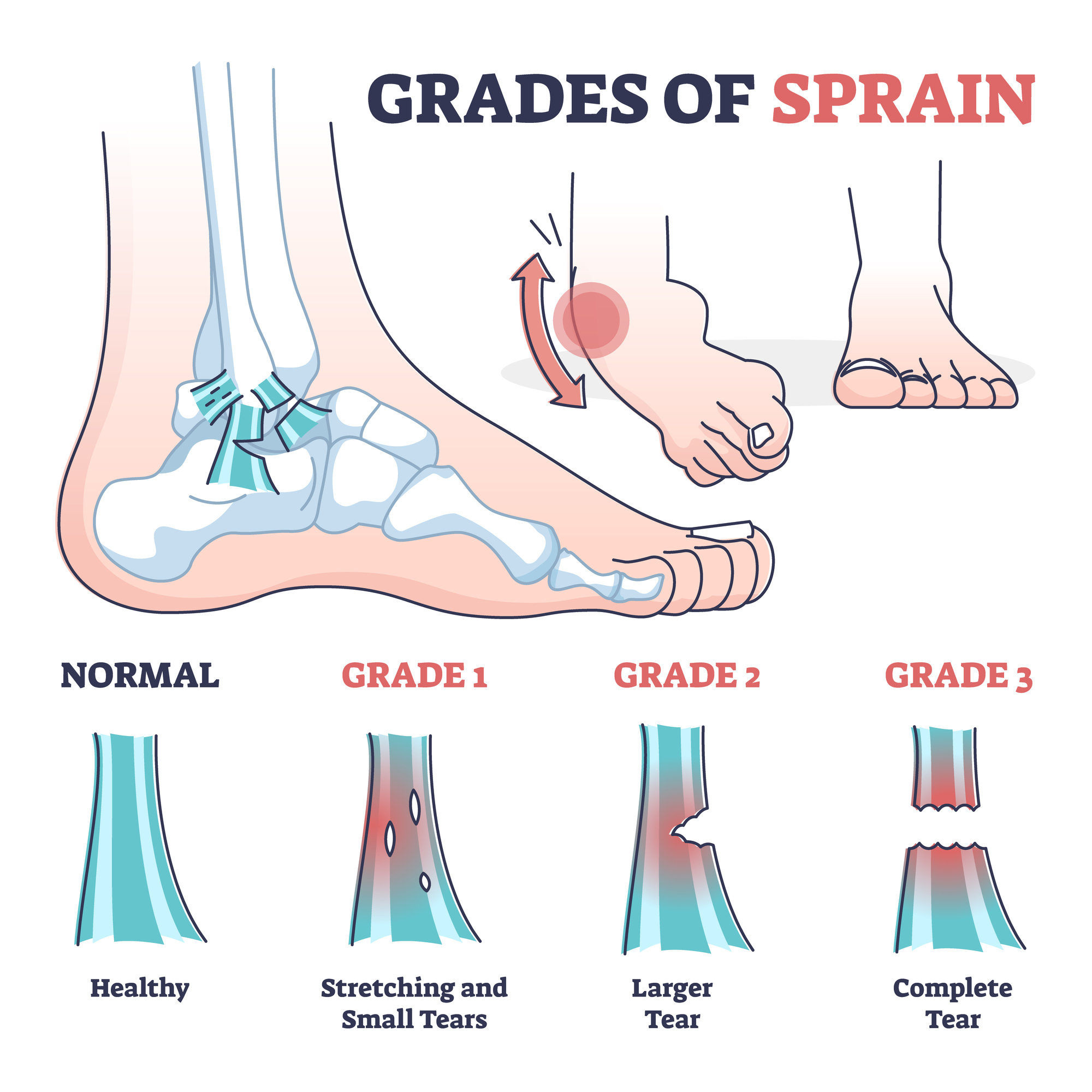Ankle Injuries
Each year, approximately 2 million patients are treated for ankle sprains and strains and ankle fractures are one of the most common injuries treated by orthopedists and podiatrists.
Ankle Injuries are Common & Complicated
What all can cause an ankle injury?
Ankle injuries usually involve a sudden, unexpected, loss of balance that results in a sharp twist of the ankle. The most common ankle problems are sprains and fractures. A strain occurs when a muscle or tendon overstretches. A sprain is an injury to the ligaments. Depending on the severity of the injury, it may take a few weeks to many months to heal completely. A fracture is a break in a bone. You can also injure other parts of the ankle such as tendons, which join muscles to bone, and cartilage, which cushions your joints. Ankle sprains and fractures are common sports injuries.

Treatment usually involves R.I.C.E.
Rest, Ice, Compression, and Elevation!
STEP 1:
Rest
Rest involves keeping off the injured ankle as much as possible. Crutches may be used to enable the patient to move around when necessary, without placing weight on the injury. An air cast or splint may be used to support the ankle for support and severe sprains may require a hard cast.
STEP 2:
Ice
Ice is used to reduce swelling. Ice packs are usually applied for 20 minutes at a time every hour as long as swelling persists.
STEP 3:
Compression
Compression involves supporting the ankle and foot with a firmly (not tightly) wrapped elastic bandage, compression stocking, or gel wrap. If swelling causes the bandage to become tight, it should be loosened immediately.
STEP 4:
Elevation
Elevation helps to minimize bruising and swelling. The foot should be kept above heart level as often as possible during the first 48 hours.
3 Convenient Locations
Reisterstown
Address:
4 Glyndon Drive, Suite 2A
Reisterstown, MD 21136
Towson
Address:
7600 Osler Drive, Suite 106
Towson, MD 21204
Baltimore- Rotunda
Address:
711 W. 40th Street, Suite 321
Baltimore, MD 21211
Contact the Family Podiatry of Maryland Team
Interested in booking at one of our three convenient locations? Feel free to send us a message so we can reach out to you as soon as possible! We're here to help with all your foot and ankle needs.
